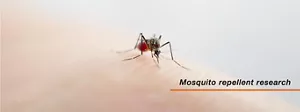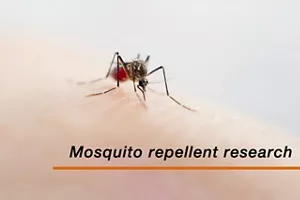Infectious Disease Control Study Dengue Virus Mosquito Research



Mosquitoes are said to be “the deadliest creatures in the world” because they transmit various diseases to humans. Malaria, a well-known mosquito-borne disease, infects more than 200 million people worldwide and kills more than 400,000 people yearly [1].
So why do mosquitoes bite people? And how do mosquitoes identify humans?
Here, we would like to introduce Kao’s research results on mosquito ecology, mechanisms underlying clever host-seeking behavior, and mosquito-borne infectious diseases, including dengue fever.
References
[1] WHO fact sheet “Malaria” (2021)
Basic Information on Mosquitoes
The ecology of mosquitoes, advanced mechanisms to identify and locate humans, and various mosquito-borne infectious diseases are described.
Basic Information on Dengue Fever
The symptoms of dengue fever caused by the dengue virus, prevention and countermeasures, and the increase in number of mosquitoes that is resistant to pesticide components are introduced.
Repellent Research Focusing on Mosquito Blood-sucking Behavior
Details on the structure of the mosquito’s legs and the wetting phenomenon, the effect of the skin surface on the landing behavior, the effect of silicone oil, the way to create a skin surface that mosquitoes dislike are reported. Additionally, the repellent effects of hippopotamus red sweat, which can also wet mosquito legs, is also reported.
Other Contents
-

Field Research in Asia
Mahidol University and Tha Song Yang (Hospital visit / village visit)
Kao is continuing activities, such as joint research with Mahidol University and identifying issues related to mosquito transmission of infectious diseases by visiting local facilities. -

Publications and Presentations
The latest information, such as papers on Kao’s mosquito repellent research is reported.
- Home
- Innovation
- Research & Development
- Infectious Disease Control Study Dengue Virus Mosquito Research
- Home
- Innovation
- Research & Development
- Infectious Disease Control Study Dengue Virus Mosquito Research





